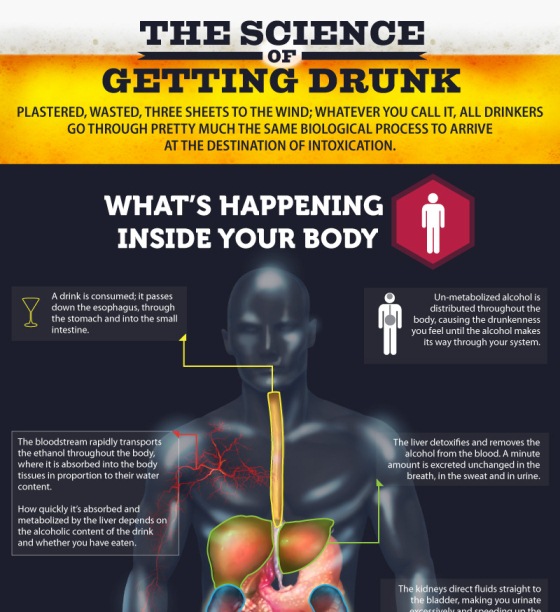Discover the surprising truth behind how many beers it really takes to feel intoxicated and the science behind alcohol’s effects.

Image courtesy of Anete Lusina via Pexels
Table of Contents
Whether you’re at a party, a bar, or just kicking back at home, the question of how many beers it takes to get drunk is a common one. The answer, of course, is not as simple as a one-size-fits-all number. In fact, the science behind alcohol metabolism, individual tolerance levels, and various factors influencing intoxication all play a role in determining how many beers it might take to reach that point of inebriation.
Understanding Alcohol Metabolism
Alcohol metabolism is a complex process that primarily takes place in the liver. When you consume a beer, the alcohol is absorbed into the bloodstream and makes its way to the liver, where it is broken down by enzymes. This breakdown process is what ultimately eliminates the alcohol from your system. However, the rate at which this occurs can vary depending on a variety of factors.
Factors such as age, weight, and gender can all influence how quickly your body metabolizes alcohol. Generally, younger individuals tend to metabolize alcohol at a faster rate than older individuals. Additionally, those with a higher body weight may be able to process alcohol more efficiently. Gender also plays a role, as women tend to have a lower alcohol tolerance than men due to differences in body composition and enzyme levels.
Individual Tolerance Levels
When it comes to alcohol consumption, tolerance refers to how well your body can handle and process alcohol. This can vary significantly from person to person and is influenced by a variety of factors, including genetics and previous alcohol use. Some individuals may be able to consume several beers before feeling the effects of intoxication, while others may reach that point after just one or two drinks.
Genetics play a significant role in determining an individual’s alcohol tolerance. Certain genetic factors can affect enzyme levels in the liver, impacting how efficiently alcohol is metabolized. Additionally, previous alcohol use can also impact tolerance levels. Those who regularly consume alcohol may have developed a higher tolerance over time compared to occasional drinkers.
Factors Influencing Intoxication
Aside from individual tolerance levels, there are a number of factors that can influence how quickly someone becomes drunk after consuming alcohol. One of the primary factors is the alcohol content in the beverages being consumed. Beers with a higher alcohol by volume (ABV) will lead to intoxication more quickly than those with a lower ABV.

Image courtesy of www.infographicszone.com via Google Images
In addition to alcohol content, mixing alcohol with other substances can also impact intoxication levels. For example, consuming alcohol while taking certain medications or mixing it with energy drinks can have unpredictable effects on the body. It’s important to be mindful of what you’re consuming and how it may interact with alcohol.
Environmental factors can also play a role in how quickly someone gets drunk. Factors such as how quickly you consume alcohol, whether you’re eating while drinking, and your overall state of health can all influence how alcohol affects your body. It’s important to be aware of these factors and to drink responsibly to avoid potential negative consequences.
Conclusion
While the question of how many beers it takes to get drunk may not have a straightforward answer, understanding the science behind alcohol metabolism, individual tolerance levels, and the various factors influencing intoxication can provide valuable insight into how alcohol affects the body. By being mindful of these factors and drinking responsibly, you can better navigate the sometimes murky waters of alcohol consumption.
Ultimately, it’s important to know your own limits and to prioritize your health and safety when consuming alcohol. If you have any concerns about your alcohol consumption or how it may be impacting your health, don’t hesitate to seek guidance from a healthcare provider or other qualified professional.
FAQ
Question 1:
How does alcohol metabolism vary between individuals?
Answer 1:
Alcohol metabolism differs based on factors like age, weight, and gender, impacting how quickly the body breaks down alcohol.
Question 2:
What role do genetics play in alcohol tolerance?
Answer 2:
Genetic factors can affect enzyme levels in the liver, influencing how efficiently alcohol is metabolized and impacting tolerance levels.
Question 3:
What factors can influence intoxication levels?
Answer 3:
Alcohol content, mixing with other substances, and environmental factors like eating while drinking can affect how quickly someone becomes intoxicated.
Question 4:
How can I drink responsibly?
Answer 4:
Know your limits, be mindful of environmental factors, prioritize health and safety, and seek professional guidance if needed to ensure responsible alcohol consumption.
Powered by Texta.ai Blog Automation
Leave a Reply